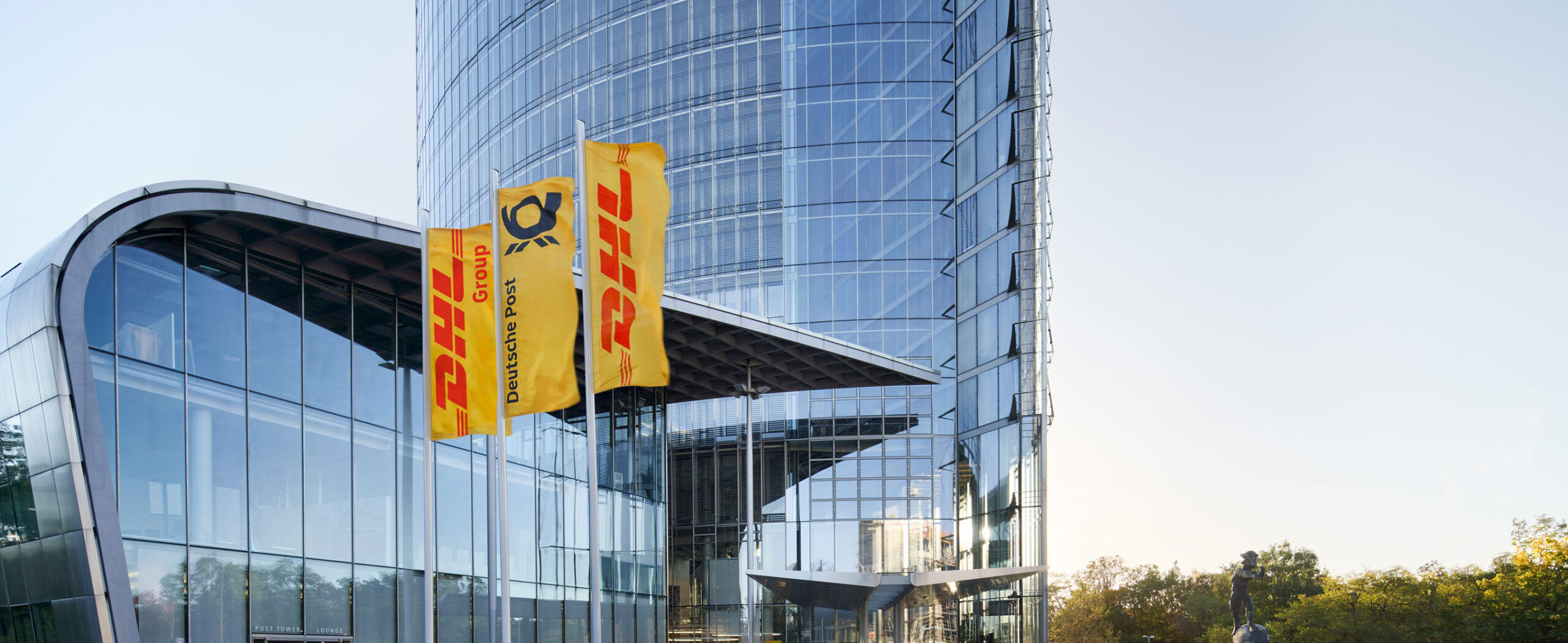DHL holds out against lower volumes in Q3
08 / 11 / 2023

DHL Group HQ in Bonn. Image Source: DHL Group
A logistics market that is continuing to return to pre-pandemic normality in the wake of the spike in demand seen during the Covid crisis, coupled with an unsettling global geopolitical and economic situation, has impacted DHL Group’s newly released third-quarter financial results.
As expected, the group said, performance this year in the third quarter did not match that of the same period of 2022. DHL recorded revenue of €19.4bn in the third quarter of this year, compared to €24bn in the same period of last year, and operating profit (EBIT) of €1.4bn was down from €2bn last year.
Lower freight volumes and rates as well as exchange rate and fuel cost effects impacted DHL business.
Despite these declines, the group retained a cash flow in the black and, it said, “This proves DHL Group’s structurally improved performance and financial strength even in a weak economic environment.”
“Global trade has continued to normalise after the pandemic-related boom and the recovery of the global economy has so far failed to materialise, also against the backdrop of higher interest rates and geopolitical crises,” Tobias Meyer, chief executive of DHL Group, stated.
“We have planned for different scenarios early on and are therefore well on track to achieve our targets for the year. In the current market environment, we will keep a close eye on our costs and continue to invest in growth areas of our global business and our service quality. We are well prepared for the moment when the global economy recovers.”
Those areas of the group in which DHL is investing include sustainable business activities such as low-emission logistics infrastructure, automation and digitalisation of operational processes.
“By strengthening the global DHL network, the group also offers its customers solutions for their omnishoring strategies to reduce their dependencies on individual locations and to increase their diversification,” DHL said.
The DHL Group made consolidated revenue of €60.4bn in the first nine months of 2023, compared to €70.7bn in the same period of 2022. Operating profit also fell year on year, from €6.5bn to €4.7bn.
During the third quarter, DHL’s express business benefited from effective yield and cost management, despite a decline in revenue at DHL Express takes into account negative currency effects and lower fuel surcharges.
Excluding currency effects and fuel surcharges, revenue in the third quarter at DHL Express decreased by 6.4 percent while, as a result of continued weak market conditions, daily Time Definite International shipment volumes (TDI) decreased by 2.7 percent.
In addition to currency effects, EBIT was impacted by the temporary negative effects of increasing fuel prices. The division countered this adverse development through continuous productivity improvements, the optimised use of network capacity and effective cost management, it said.
DHL’s Global Forwarding, Freight division experienced what was said to be an expected decline in air and ocean freight revenue due to seeing lower volumes in both air and ocean freight and normalising freight rates.
Excluding negative currency effects, revenue was 40.1% down on the same period of last year.
DHL Supply Chain welcomed continued growth in revenue and earnings. Excluding negative currency effects, the business enjoyed a 6.3% year on year growth in revenue.
Revenue growth was supported by new business, contract extensions and growing e-commerce business. Productivity increases achieved through digitalisation and standardisation were said to have supported earnings growth.
Meanwhile, excluding negative currency, revenue at DHL eCommerce rose by 3.2% year on year. However, the division’s EBIT fell, mainly as a result of higher costs and continued investment in network expansion.
Where DHL did see year on year declines, Meyer remarked: “We expected these developments based on the macroeconomic situation.
“At DHL Global Forwarding, Freight we are seeing a further normalisation of freight rates. Earnings were also impacted by lower volumes and negative exchange rate effects.
“At DHL eCommerce and DHL Express in particular, we have invested in expanding our network. Volumes at Express are down because of weaker world trade. But that also means we have sufficient capacity to cope well with peak volumes in the fourth quarter.”
“Given the global economic and geopolitical situation, we were unable to match the exceptional years of 2021 and 2022, but that was what we had expected,” Meyer insisted.
Moreover: “We are still at a high level in terms of key performance indicators such as revenue, EBIT and free cash flow. We are on track to achieve our annual targets.
“Our global network and balanced portfolio give us the flexibility and resilience to succeed even in a difficult market environment,” he concluded.














